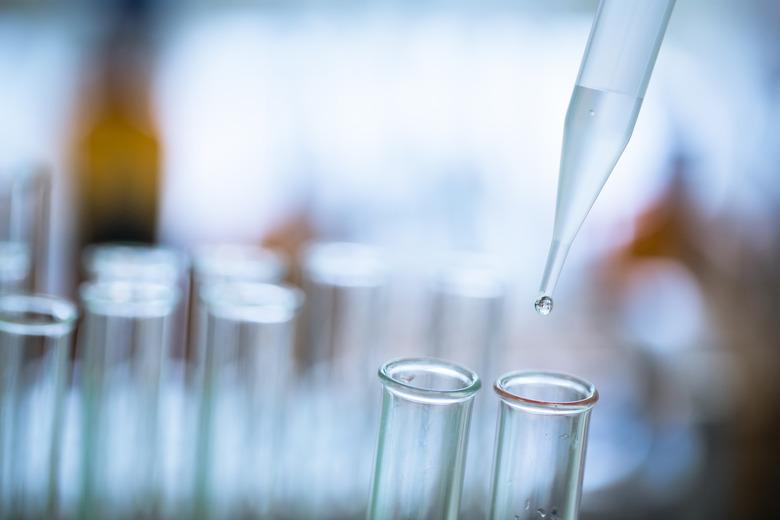Why Is Distilled Water A Good Control For Science Projects?
The main reason distilled water offers the best choice for use in science projects is that it is inert, which means little to nothing remains in the water after distilling. Water that comes from wells, lakes and streams, even after treatment for drinking, still contains chemicals, minerals and metals that can affect the outcome of a science project.
TL;DR (Too Long; Didn't Read)
Distilled water is basically inert, meaning nothing is in the water but hydrogen and oxygen. Distillation kills most organic matter and removes minerals from the water, making it an ideal control element for science projects and laboratory tests.
Distilled Water in Science Projects
Distilled Water in Science Projects
The use of distilled water in science projects assures that the outcome of the test is fair. Because distilled water basically contains nothing in it, since it is inert, it won't affect the outcome of tests completed for science projects. As a control element, when conducting multiple science projects or tests, water that is pure won't change the results of the test. If there were minerals or live organisms in the water, this could lead to results that are not fair, but biased, which means the results are not accurate.
Laboratory Use
Laboratory Use
Laboratories use both distilled water and deionized water as controls in experiments. The distillation process also removes the electrical charge from the atoms and molecules in water. Deionization removes only non-charged organic matter from the water. Distilled water removes even more impurities than deionization does, if the water undergoes a filtering process before boiling and distillation. To ensure accurate laboratory results, wash all laboratory equipment with distilled water before use as well.
Deionized vs. Distilled Water
Deionized vs. Distilled Water
The science project or the proposed test using the water as a control element in the experiment determines whether you choose to use deionized water or distilled water. Of the two, distilled water is the purest because the water undergoes boiling that kills off most organic contaminants. Deionized water may still contain minute amounts of organic material in it which could affect the outcome of an experiment. But distilled water is harder and costlier to make than deionized water, which is why many labs elect to use deionized water instead.
The Distillation Process
The Distillation Process
To make distilled water, use a distiller, a series of spiral glass or copper tubes called a still, to captures the steam from boiling water. Once the steam travels through the distillation process, all the minerals and most of the contaminants no longer exist in the water. Before you distill water, you must filter the water to remove any compounds or organic matter in the water. As pure water, many people prefer to drink distilled water, but they miss out on the minerals tap and well water provide.
Cite This Article
MLA
Brenner, Laurie. "Why Is Distilled Water A Good Control For Science Projects?" sciencing.com, https://www.sciencing.com/distilled-good-control-science-projects-7418493/. 25 April 2018.
APA
Brenner, Laurie. (2018, April 25). Why Is Distilled Water A Good Control For Science Projects?. sciencing.com. Retrieved from https://www.sciencing.com/distilled-good-control-science-projects-7418493/
Chicago
Brenner, Laurie. Why Is Distilled Water A Good Control For Science Projects? last modified August 30, 2022. https://www.sciencing.com/distilled-good-control-science-projects-7418493/
